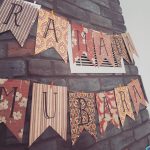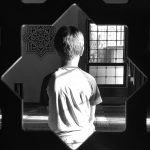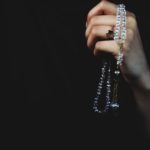
The last couple of weeks have been unusual and unsettling to say the least. I believe I am not alone when I say it has been challenging to know how and what to feel. I know for myself it began when I saw the photo of the Kabbah, empty. A sinking feeling in the pit of my stomach, coupled with great sadness and uncertainty about what is to come.
Typically I am pretty relaxed about similar viruses/illness. I remember when we went to Hajj in 2010 there was a swine flu risk, and people were warned to not go, or to take extra precaution, while I felt somewhat unphased. I felt similarly about the situation with the Corona virus until this last week. Of course thing changed drastically in the last 48 hours with the statements released by the Turkish Health Ministry, as well as the cancellation of schools and programming where there are large crowds. I know for myself, seeing the situation get to this stage, solidified that perhaps I should be taking some action to “prepare” my home and family. I also think as a community, we still need much guidance not just about how to protect ourselves from the virus, but also a debrief about processing the emotion and anxiety that come along with it. I have been spending a lot of time contemplating the situation and here are my thoughts.
The most shocking part of all of this for me has been how it has already divided our communities. Based on what I have seen online, and from those I have spoken to, it is almost as though there were immediately “two sides” and people had to choose one. There is the “its not a big deal, people are exaggerating, make memes about toilet paper, comment about how others are going crazy” group, and then there is the “we need to be prepared, go out and buy a stockpile of groceries and supplies, fear the worst, wear masks outside” group. It just seemed to be a given that whatever side people chose, they began to criticize the other side. Instead of just respecting that someone else felt differently and respecting his/her fears or lack thereof, we began to “other” the other side. The thing is it is absolutely okay for us to have differing opinions. It is possible to respectfully disagree with each other. Honestly are we surprised that people would rush out to stockpile groceries when we live in times where we are constantly bombarded by fear mongering and horror on the media? That reaction seemed pretty natural to me. In the end, we need to realize, this virus will affect our whole community. We can’t divide ourselves before the difficulty even begins. As we’ve seen in these last couple of days, we are all in the same boat now anyway.
So, as Muslims, how can we approach the illness and find peace in our hearts when challenged with such an unknown? Are there lessons to be learned, examples to be taken from the Quran and Sunnah that can be a comfort for us? Absolutely, and inshallah we can take a moment to remind ourselves of some of these.
There are many examples from the life of the Prophet SAW regarding duas for protection, and cures he (SAW) taught us. But when discussing contagious disease, the one example that seems the most obvious to remember, is the hadith referenced when Umar RA was the khalipha and faced the challenge of the plague in Syria. Umar RA was travelling with military forces to support those in Syrian when he learned there was a plague. He was faced with the situation of having to decide to enter the city, knowing he risked illness or death himself, as well as possibly spreading the disease to his troops and bringing illness back to Medina, or he could stay away from city and return with his group. He consulted various groups, elders and the companions of Rasulullah (SAW) seeking counsel, and they were divided in opinion. In the end, Umar RA decided they would turn away from the city and return to Medina. One of the most beloved companions to Umar RA, Abu Ubaydah ibn Jarrah questioned his decision and said ‘Are you fleeing from the decree of Allah?’ to which Umar RA replied Yes, ‘we are fleeing from the decree of Allah to the decree of Allah’.
‘Abdur Rahman ibn ‘Awf , another companion, who had been absent then came and said, ‘I have some knowledge regarding this issue. I heard Rasulullah (SAW) say,
“When you hear that [a plague] is in a land, do not go to it and if it occurs in a land that you are already in, then do not leave it, fleeing from it.’” (Sahih Bukhari and Muslim)
I am sure for many of us this is a story we have heard before, particularly in the light of the recent events facing the world. The most obvious lesson of course is that the Prophet (SAW) suggested we avoid the place of illness, as well as be sure to not carry the illness elsewhere. This is the idea of quarantine, and is the suggestion we see now being implemented worldwide. But apart from this, I believe there are also many other lessons we can take from this story.
First and foremost I believe is the simple reminder that the Quran and Sunnah is full of relevant reminders for us that are timeless. We can find comfort knowing, the answers and guidance for us to follow is right there at our fingertips should we choose to look, read and ask.
Another beautiful piece of wisdom we can learn from the story above is that there was a difference of opinion amongst the community about what the correct course of action was. Various groups disagreed about what to do, but it never caused division.
Additionally, Umar RA, who was the leader at the time, also sought the counsel of others around him. We later learn that his instinct (as we know was often the case) was the same as the Prophet’s SAW advice. But he didn’t pretend to know what was best. He asked those he trusted and who might have knowledge about the situation. Then, when he made his decision, those whom he was with, respected and obeyed his authority. This last point is something we should really be mindful of, particularly when there will be suggestions made about avoiding the mosque, Jummah prayer, and other religious events we know to be obligatory. In such instances, we are expected to respect the authority and obey what has been asked for us. The decisions that have been made, have been made with the consideration of the whole community in mind. While you may be healthy enough to recover from the illness, there are others around us that are not. Don’t put others at risk.
Lastly, it is important consider the statement of Umar RA “we are fleeing from the decree of Allah to the decree of Allah”. This is a statement about Qadr. There are many that are approaching this virus with the mentality of “if Allah wills I will succumb to the virus’. Yes, of course this is true. But Tawakkul is not carelessness. Tawakkul is trusting in Allah, and having full faith that He will take care of you, but at the same time, “tying your camel”. Allah has commanded us to be cautious and to abstain from things that will lead to our destruction as well as to be responsible in our decision making. Just as we would not leave the camel untied in the desert, we shouldn’t approach this illness without taking preparations. We are prohibited from putting ourselves in danger. Taking action to protect ourselves can be considered fulfilling the decree of Allah. That being said, there is a significant difference between being prepared and stockpiling in a way that causes harm to others. I am sure most of us seen images of people with stacks of toilet paper, or buying the whole shelf of cleaning products, leaving none for anyone else. Buying so much that it causes harm to others is not permissible in our religion. We must find balance. We prepare for the needs of ourselves and families, while making sure that others in our community are taken care of. Remember it is our reaction to the hardship that determines piety, not the affliction itself. We don’t look at the virus and whether it affects a family and think it a curse or a punishment. It is not for us to assume that those who are ill are somehow less pious than the ones who healthy. It is certainly not okay to try to take advantage of those in need. How we respond to this trial is what we should be focusing on.
Over the next few weeks, as we are sitting in our homes with our families, lets reflect. What would we do if this illness was coming for us and we would certainly die? What acts of worship would we be doing? What things would we change or ask forgiveness for. We need to trust in the protection of Allah, but start living knowing this world is temporary. We need to look at this as an opportunity to come closer to our Lord and change aspects of ourselves that need changing. We need to become more generous and take care of our community. We need to make sure we have prepared food or cleaning products for those who may not be able to buy them themselves. We should offer to babysit for the family who cannot take time off of work, and whose kids are home from school.
Know this illness is not being spread by one race or group of people. It is a pandemic, we cannot fall into the trap of Shaytan by placing blame and being racist or xenophobic. We do don’t discriminate in Islam.
Lets make dua. Not just for family, but for neighbours, for the city, for the ummah, for humanity… We need to follow the guidance of our Prophet (SAW) and his suggestions about how to protect our families. Recite the last three surahs of the Quran, Ayat ul Kursi, Al Fatihah (with the intention that it is a cure)… We should also take comfort in knowing that Allah accepted the Prophet’s dua request that his Ummah will never be wiped out in entirety like those of the past.
May Allah protect all of us. May this be a test that causes us to grow in our relationship with our Lord. May it be an opportunity to unite our communities and be a chance for dawah with those around us. For those affected by the virus, may they bear it with patience, be healed and may Allah give comfort to the families left behind by those who pass away. Lastly, may Allah send special protection on those Muslims in concentration camps in China, and in the open air prison Palestine, as well as those displaced by war or migration. May He protect them and prevent any harm from coming to them. Ameen.






Yorumlar